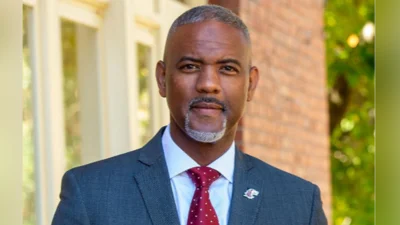Illinois to co-lead new CZ Biohub in Chicago | https://news.illinois.edu/files/6367/159197325/212225.jpg
Illinois to co-lead new CZ Biohub in Chicago | https://news.illinois.edu/files/6367/159197325/212225.jpg
The University of Illinois Urbana-Champaign has been chosen to lead the Chan Zuckerberg Biohub Chicago – a new biomedical hub – along with the University of Chicago and Northwestern University. The three-university team was selected to lead the new biomedical hub as part of a competitive application process for a research initiative explicitly focused on measuring human biology.
“Our role in the CZ Biohub Chicago is further evidence that our university is working at the leading edge of advancing human health,” Chancellor Robert J. Jones said. “When we unite our expertise with the collective strengths of our world-class research university partners, the horizon for innovation in health expands exponentially. The partnership between our three institutions is strong and growing, and that translates directly and rapidly into impact for the people of Illinois.”
With a location yet to be determined, the Chicago site is the first expansion of the Chan Zuckerberg Biohub Network, modeled after the first CZ Biohub in San Francisco. The plan provides for state-of-the-art laboratories, meeting space, faculty-in-residence, a biofoundry and other sophisticated instrumentation. CZ Biohub Chicago will be led by Shana O. Kelley, a professor of chemistry and biomedical engineering at Northwestern. Learn more in the announcement from the Chan Zuckerberg Initiative.
“All big breakthroughs start with basic research. The Biohub will be a destination that unites the brightest minds with one another and with the tools and resources to achieve breakthrough science that will have real implications for human health,” said Susan Martinis, the vice chancellor for research and innovation at Illinois. “This will create incredible opportunities for our research community at Biohub Chicago and will have ripple effects right here in Champaign-Urbana, too.”
Biohub Chicago research will address significant scientific challenges over the next decade. “We are excited to scale this successful model of collaborative science into a larger network by welcoming the new Biohub in Chicago,” CZI co-founder and co-CEO Priscilla Chan said. “This institute will embark on science to embed miniaturized sensors into tissues that will allow us to understand how healthy and diseased tissues function in unprecedented detail. This might feel like science fiction today, but we think it’s realistic to achieve huge progress in the next 10 years. I look forward to the advances in science and technology that this new Biohub will spur in studying how tissues function to understand what goes wrong in disease and how to fix it.”
“The CZ Biohub Chicago gives us a springboard to unravel the design rules that govern human biology,” said Rashid Bashir, the dean of the Grainger College of Engineering at Illinois. “This is the kind of boundary-breaking, frontier-shaking work that our scientists and engineers crave. We’re asking some tough research questions and we’re going to prove that the answers to those questions are possible.” Bashir will be on the executive leadership committee of the CZ Biohub Chicago.
According to Martinis, Illinois’ strength in interdisciplinary collaboration was an important asset identified in the proposal. Biohub Chicago will leverage expertise and assets across disciplines and across institutions to develop engineering technologies to make precise, molecular-level measurements of biological processes and physical interactions within human tissues, with an ultimate goal of understanding and treating the inflammatory states that underlie many diseases.
“Impactful interdisciplinary collaboration doesn’t just happen, it must be nurtured in deliberate ways,” said Gene Robinson, the director of the Carl R. Woese Institute for Genomic Biology at Illinois. “Our campus knows how to do grand-challenge, team-science research, at scale. This will be an incredible, transformational opportunity for our research community.”
Several Illinois faculty members will play a significant role in Biohub Chicago, including Joon Kong, the Robert W. Schafer Professor of Chemical and Biomolecular Engineering and leader of the Multicellular Engineered Living Systems Research Theme at the Institute for Genomic Biology; and Martha Gillette, the Alumni Professor of Cell & Developmental Biology, the director of the Neuroscience Program and an MCELS member. IGB is expected to serve as the campus “satellite” for the Biohub, while many other campus units will be involved with Biohub Chicago activities, including the National Center for Supercomputing Applications, the Beckman Institute for Advanced Science and Technology, the Cancer Center at Illinois, the Holonyak Micro and Nanotechnology Laboratory, the Materials Research lab, the IBM-Illinois Discovery Accelerator Institute and C3.ai Digital Transformation Institute.
Martinis said CZ Biohub Chicago research opportunities for Illinois faculty likely will be announced in the next several months.
Original source can be found here.






 Alerts Sign-up
Alerts Sign-up